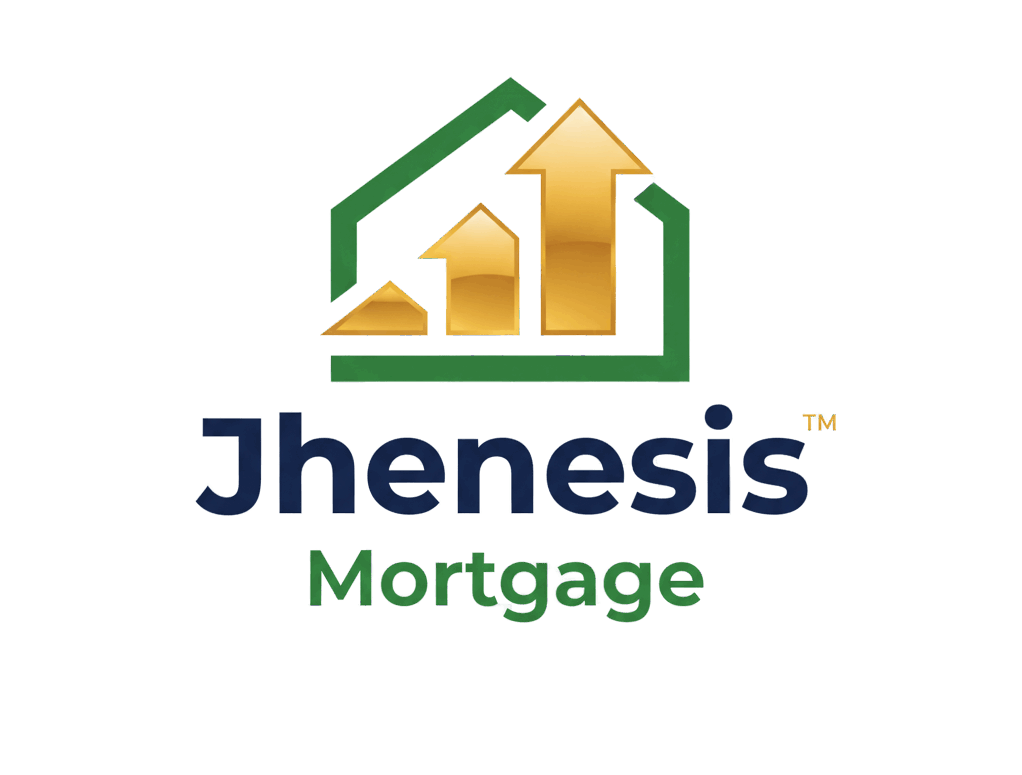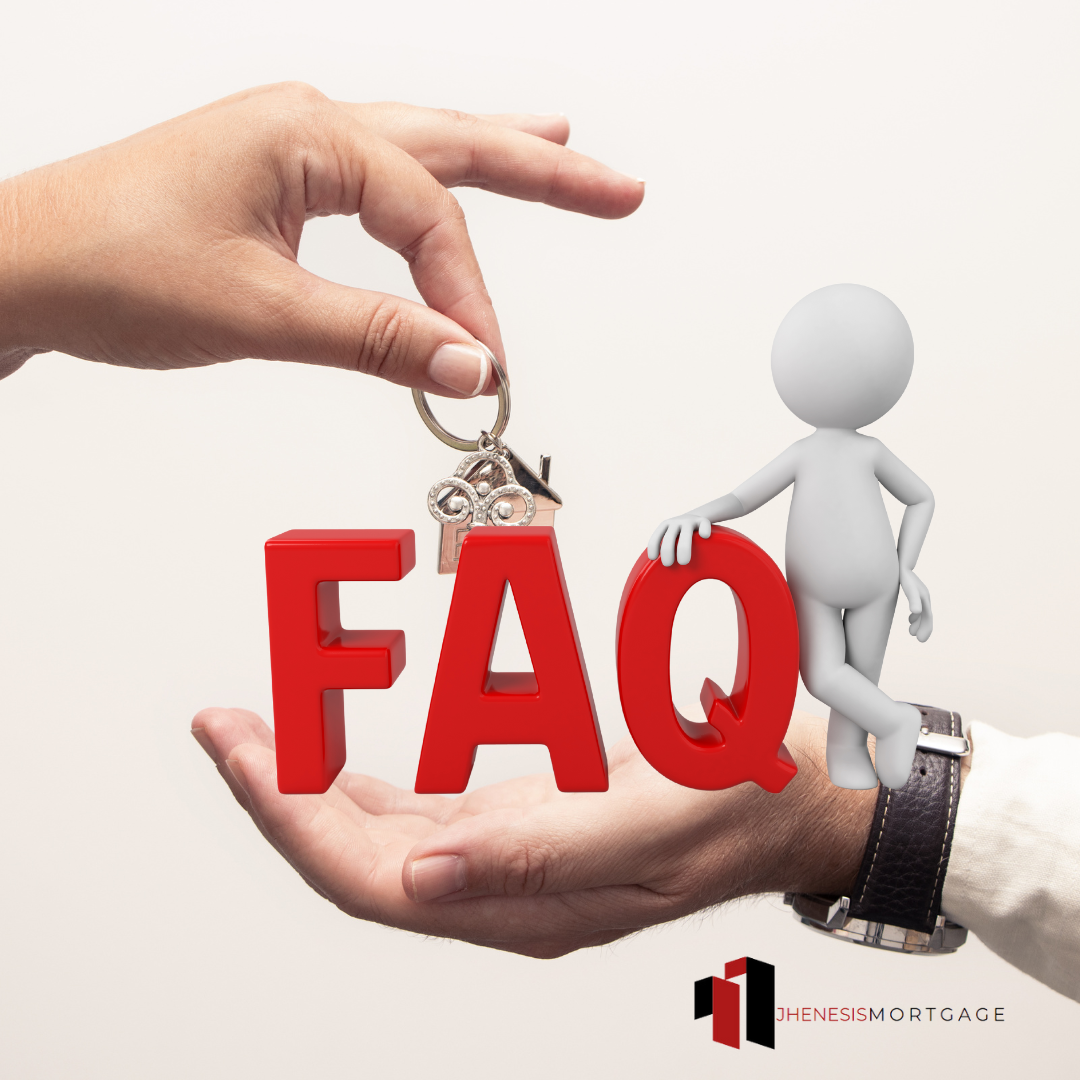
Your Home, Our Expertise: Your Perfect Mortgage Partner
Welcome to the Jhenesis Mortgage FAQ page! Here, we’ve gathered answers to the most common questions about our mortgage services, loan options, and the application process. If you don’t see the answer to your question, please don’t hesitate to reach out to us directly.
What Are Current Mortgage Rates Today?
As of November 2025, current mortgage rates average around 6.5% for a 30-year fixed-rate mortgage, though they fluctuate based on economic factors like inflation and Federal Reserve policies. For personalized mortgage rates today, use a mortgage calculator to factor in your credit score, down payment, and location. Rates for 15-year loans are typically lower at about 5.8%, while adjustable-rate mortgages (ARMs) start even lower but can rise over time. Shop multiple lenders to find the best deal—compare APRs, not just interest rates.
How Much House Can I Afford?
To determine how much house can I afford, use the 28/36 rule: Your housing costs (mortgage, taxes, insurance) shouldn’t exceed 28% of your gross monthly income, and total debt payments no more than 36%. Input your income, debts, and down payment into a mortgage calculator with taxes and insurance for an estimate. For example, with a $100,000 annual income and 20% down, you might qualify for a $400,000 home at current rates. Always get pre-approved to confirm.
What Is a Mortgage Calculator and How Do I Use It?
A mortgage calculator is an online tool that estimates your monthly payments based on loan amount, interest rate, term, and extras like property taxes and homeowners insurance. Popular searches like “mortgage calculator” (over 4 million monthly) highlight its demand. To use one: Enter your desired home price, down payment percentage, loan term (e.g., 30 years), and current rate. It outputs principal, interest, and total costs—perfect for budgeting before applying for a home loan.
What’s the Difference Between Fixed-Rate and Adjustable-Rate Mortgages?
A fixed-rate mortgage locks in your interest rate for the entire loan term (e.g., 15 or 30 years), providing payment stability—ideal if you plan to stay long-term. An adjustable-rate mortgage (ARM) starts with a lower introductory rate that adjusts periodically based on market indexes, like a 5/1 ARM (fixed for 5 years, then annual changes). Fixed rates are safer in rising markets, while ARMs suit short-term homeowners. Search trends show “ARM mortgage” gaining traction amid volatile mortgage rates.
How Much Down Payment Do I Need for a Mortgage?
The standard down payment for a conventional mortgage is 20% to avoid private mortgage insurance (PMI), but first-time buyers can start as low as 3% with FHA loans or 0% with VA loans for eligible veterans. A larger down payment lowers your loan-to-value (LTV) ratio, potentially securing better mortgage rates and reducing monthly payments. For a $300,000 home, that’s $9,000–$60,000 upfront. Use a mortgage calculator to see the impact on your budget.
What Is Mortgage Pre-Approval and Why Do I Need It?
Mortgage pre-approval is a lender’s conditional commitment to loan you a specific amount, based on your credit, income, and assets—stronger than pre-qualification, which is informal. It shows sellers you’re serious, strengthens your offers, and helps you shop within your means. The process takes 1–3 days and involves submitting documents like pay stubs. In competitive markets, pre-approval can make or break your bid on a dream home.
Can I Get a Mortgage with Bad Credit?
Yes, but options are limited—FHA loans accept scores as low as 580 with 3.5% down, while conventional loans prefer 620+. Improving your score by paying down debt or disputing errors can unlock better mortgage rates. Subprime lenders exist, but they charge higher fees. Searches for “mortgage with bad credit” spike among buyers; focus on building credit 6–12 months pre-application for the best terms.
What Are Closing Costs on a Mortgage?
Closing costs are fees paid at loan closing, typically 2–5% of the loan amount ($4,000–$10,000 on a $200,000 mortgage). They include appraisal ($300–$500), title insurance, origination fees, and prepaid taxes/insurance. Shop lenders to negotiate credits, and review your Loan Estimate form early. These aren’t included in basic mortgage calculators, so add them to your affordability math.
What’s the Difference Between FHA, VA, and Conventional Loans?
- FHA loans: Government-backed, low down payment (3.5%), lenient credit—great for first-timers.
- VA loans: No down payment or PMI for veterans/military; funded by the Department of Veterans Affairs.
- Conventional loans: Private lender-backed, stricter requirements but no upfront fees; best for strong credit profiles.
Each suits different buyers; compare via “best mortgage lenders” searches to match your needs.
How Long Does It Take to Get a Mortgage?
The full mortgage process averages 30–45 days from application to closing, but pre-approval can happen in days. Delays come from appraisals (1–2 weeks) or underwriting reviews. In 2025, digital tools speed things up—opt for lenders with online portals. Start early to align with your home search timeline.
For more personalized advice on refinance rates or best home loan lenders, contact a trusted mortgage professional. Ready to calculate your options? Try our free mortgage calculator now!
1. What types of mortgage loans does Jhenesis Mortgage offer?
We offer a wide range of mortgage products, including:
- Conventional Loans
- FHA Loans (Federal Housing Administration)
- VA Loans (for Veterans and their families)
- USDA Loans (for rural and suburban homebuyers)
- Jumbo Loans (for high-value properties)
- Refinancing Options (including cash-out refinances)
- Non-QM Loans (for self-employed or non-traditional borrowers)
- DSCR Loans (for real estate investors)
Our team will work with you to find the best loan for your needs.
2. What is the minimum credit score required to qualify for a mortgage loan?
The minimum credit score required varies depending on the type of loan:
- Conventional Loans: Typically, a minimum score of 620 is required.
- FHA Loans: Generally, a score of 580 or higher is required.
- VA Loans: There’s no strict minimum, but a score of 620+ is often recommended.
- USDA Loans: Generally requires a score of 640+. If your score is lower than the minimum requirement, we may still have options available. Reach out to us for guidance.
3. What is the difference between a fixed-rate mortgage and an adjustable-rate mortgage (ARM)?
- Fixed-Rate Mortgage (FRM): Your interest rate and monthly payments stay the same throughout the life of the loan, making it a stable option.
- Adjustable-Rate Mortgage (ARM): Your interest rate may change periodically based on the market. While the initial rate may be lower than a fixed-rate mortgage, it can increase over time, impacting your monthly payments.
4. What is a VA Loan, and who is eligible for it?
A VA Loan is a mortgage loan guaranteed by the U.S. Department of Veterans Affairs. It’s designed to help veterans, active-duty military members, and qualified spouses purchase homes with no down payment and no PMI (Private Mortgage Insurance). If you’ve served at least 90 days during wartime or 181 days during peacetime, or if you’re a spouse of a service member who died in the line of duty, you may qualify for a VA loan.
5. How does the refinancing process work?
Refinancing involves replacing your current mortgage with a new loan, often at a lower interest rate or different terms. The process typically includes:
- Application: Submit your application and documentation to us.
- Appraisal: A home appraisal is conducted to determine the value of your property.
- Approval: We review your financial information and the appraisal to determine your eligibility.
- Closing: If approved, you’ll close the new loan, which pays off your old one.
We offer several refinancing options, including cash-out refinancing and rate-and-term refinancing.
6. What is a Debt Service Coverage Ratio (DSCR) Loan?
A DSCR Loan is a specialized loan option that evaluates the income-producing potential of a property rather than the borrower’s income. It’s perfect for real estate investors, as the loan qualification is based on the property’s ability to generate rental income to cover the debt service. It’s a flexible loan that doesn’t require traditional income documentation like pay stubs or tax returns.
Get Your Non-QM Quote in 3 Minutes
12-mo bank statements • DSCR 0.75 • P&L only • 1 day out of foreclosure
Instant Mortgage Calculator
Monthly PI: $0
Taxes & insurance extra
7. What is Private Mortgage Insurance (PMI), and do I need it?
PMI is insurance that protects the lender in case the borrower defaults on the loan. It’s typically required when you make a down payment of less than 20% on a conventional loan. However, with VA loans, USDA loans, and some other types of loans, PMI is not required. If you’re purchasing with less than 20% down and don’t want PMI, options like Lender-Paid Mortgage Insurance (LPMI) or piggyback loans may be available.
8. Can I get a mortgage loan with bad credit?
Yes, you can still qualify for a mortgage even with less-than-perfect credit. FHA loans and some Non-QM loans are specifically designed to help borrowers with lower credit scores. Our team will help you explore all options to find the best solution.
9. What are the closing costs associated with a mortgage?
Closing costs typically range from 2% to 5% of the loan amount and may include:
- Appraisal fees
- Title search and insurance
- Home inspection
- Attorney fees (if applicable)
- Recording fees
- Loan origination fees
- Prepaid taxes and insurance premiums
In some cases, sellers may agree to pay a portion of these costs, particularly in VA loans.
10. What documents do I need to apply for a mortgage loan?
To start your mortgage application, you’ll generally need:
- Proof of identity (e.g., driver’s license, passport)
- Income verification (pay stubs, W-2s, tax returns)
- Credit report (we will pull this as part of the application process)
- Bank statements (last 2 months)
- Employment verification (if applicable)
- Property information (for purchase loans, this includes the address and sale details)
Our team will guide you through the documentation process to ensure a smooth application.
11. Can I get pre-approved for a mortgage loan?
Yes, getting pre-approved for a mortgage loan is a great first step. Pre-approval gives you an idea of how much you can borrow and can help you in negotiations when making an offer on a home. To get pre-approved, you’ll need to submit your financial documents for review.
12. How long does it take to close a mortgage loan?
The mortgage closing process typically takes between 30 to 45 days, though it can vary depending on the type of loan and your specific situation. Refinances might be quicker, while first-time homebuyer loans or FHA/VA loans could take longer due to additional requirements.
13. Do you offer refinancing options for existing mortgages?
Yes, we offer a variety of refinancing options to help you lower your interest rate, consolidate debt, or access cash from your home’s equity. You can choose from conventional refinancing, FHA refinancing, VA refinancing, or other programs. We will guide you through the best options for your financial situation.
14. How can I contact Jhenesis Mortgage for more information?
To speak with one of our mortgage professionals, you can:
- Call us at 407-630-9766
- Email us at [email protected]
- Or simply fill out the contact form on our website, and we will reach out to you!
15. Are you licensed to operate in all states?
Jhenesis Mortgage operates in several states. Please contact us to confirm if we can help you in your specific location.
If you have any other questions or would like to speak with a mortgage professional, contact us today 407-630-9766! Our team is here to help you find the best mortgage solution for your needs.

